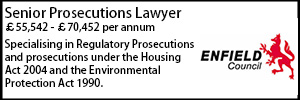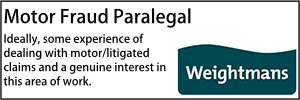Government launches fast-track review to change “outdated” licensing rules
The Department for Business and Trade and the Home Office have issued a call for evidence as part of a fast-track review - or “four-week blitz” – of what the Government says are “outdated” licensing rules.
- Details
The call for evidence focuses on nine key recommendations from the Government’s Licensing Taskforce, with particular emphasis on streamlining on-trade alcohol licensing for hospitality venues.
Amongst other things, it covers proposals for a National Licensing Policy Framework, a licensing condition “amnesty”, and an end to the requirement to publish notices in the print edition of local newspapers.
It will hear from licensed businesses and trade bodies, local authorities and licensing officers, police and other enforcement agencies, legal, planning and regulatory professionals and members of the public.
The current licensing system, under the Licensing Act 2003 and supported by statutory guidance, regulates activities such as the sale of alcohol, provision of entertainment and late-night refreshment.
Local authorities issue licences and enforce conditions based on four licensing objectives:
- the prevention of crime and disorder
- public safety
- the prevention of public nuisance
- the protection of children from harm
Applications for, and variations to, licences are assessed against these objectives. The aim of the licensing system is to support vibrant local economies while ensuring communities are safe and protected.
However, the Government noted: “Over the years the balance of the system has shifted, with greater weight being given to public safety and crime prevention, under the statutory licensing objectives, and less of a focus on business resilience and growth.”
Therefore, reform of the regime seeks to streamline “outdated” processes, improve consistency across local authorities and better integrate licensing with related regimes such as planning, community cohesion, tourism and cultural policy.
The call for evidence notes that the Licensing Taskforce recommended that government establish a National Licensing Policy Framework to “harmonise licensing practices across authorities while preserving local discretion”.
It adds that the proposed framework is intended to deliver a balanced licensing system that reflects the original intent of the licensing framework, for example:
- giving business greater freedom and flexibility to meet customers’ expectations,
- greater choice for customers, including tourists, about where, when and how they spend their leisure time,
- encouraging more family-friendly premises where younger children can go with their families,
- further development within communities of a rich culture of live music, dancing and theatre,
- the regeneration of areas that need the increased investment and employment opportunities that a thriving and safe night-time economy can bring,
- the necessary protection of local residents, whose lives can be blighted by disturbance and anti-social behaviour associated with some people visiting licensed premises.
The call for evidence states: “In addition, the NLPF will help to harmonise licensing practices across local authorities while preserving local discretion. It would sit alongside the Licensing Act 2003 and the statutory guidance, providing national direction to support consistency, transparency and alignment with broader government goals such as economic growth, enhancing cultural representation, high street resilience and improving public health and wellbeing.”
Outlining plans for an amnesty on licensing conditions, the call for evidence notes that most premises licences are granted indefinitely and include conditions that were considered reasonable and proportionate at the time they were added to the licence.
However, an amnesty would recognise that many licensing conditions - particularly those inherited from pre-2005 regimes - may no longer be relevant or proportionate and therefore the removal of which should be treated as minor variations.
The Government said: “Importantly, an amnesty would operate within existing legislative powers and would not require new laws. The amnesty would not allow for blanket removal of conditions without review. […] It would focus on-trade premises (e.g. restaurants, bars, nightclubs), rather than off - trade premises (e.g. off-licences).”
Another reform outlined by the Government is to look at ending the requirement for printed statutory notices for alcohol licences.
The Licensing Act currently requires that new premises licence applications or major changes to existing licences must be announced both in a local newspaper and on the premises.
These statutory notices also apply to other local decisions, such as certain planning applications and road closures.
The Government noted in its call for evidence: “The requirement to place statutory notices in printed local newspapers reflects the need to keep local people informed of decisions that may affect them but also provides a source of income for media companies. However, some licence applicants report significant and varying costs for advertising notices.
“[…] The industry has launched a Public Notice Portal, which provides a centralised and interactive resource for all types of statutory notice, with plans underway to incorporate public consultation functionality to help public bodies and commercial entities engage with the public more effectively.”
Business and Trade Secretary Peter Kyle said: “As part of our Plan for Change, this review will help us cut through the red tape that has held back our brilliant hospitality sector, giving them the freedom to flourish while keeping communities safe. That is the balance we’re trying to strike.
“We’re determined to back small businesses and bring the buzz back to our high streets.”
Nick Mackenzie, co-chair of the Licensing Taskforce and CEO at Greene King, said: “Modernising the licensing system is a vital step towards reducing the red-tape that has stifled businesses for too long. Swift consultation on the Licensing Taskforce’s recommendations is key and we urge the Government and industry to work together to ensure changes made at pace to address the challenges of running a modern hospitality business.
“Pubs are faced with continued rising costs, placing them under enormous pressures which is why the Government must continue to back the sector, including critical reforms on business rates which would unlock opportunities for pubs to invest and help drive economic growth.”
Lottie Winson
Trust Solicitor (Public & Healthcare Law)
Trust Solicitor (Employment & Contract Law)
Locums
Poll



























